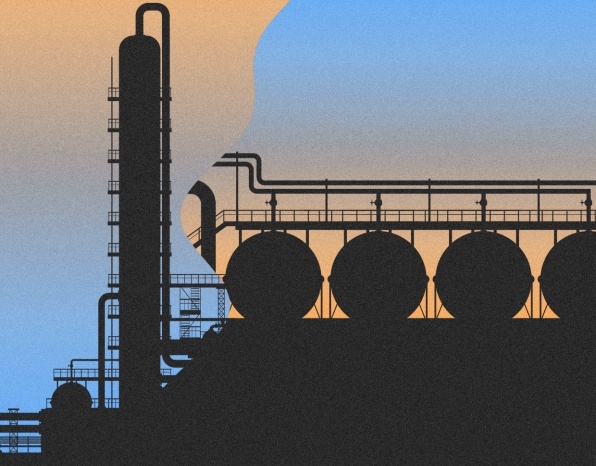Even oil companies say they don’t want to pollute as much as Trump wants them to
When the Trump administration announced its plans to roll back regulations that cut methane pollution—a greenhouse gas more potent than CO2—from oil and gas companies, even some oil and gas companies said that they didn’t want that to happen.
Exxon asked the EPA to maintain parts of the Obama-era policy. The president of BP America argued that “regulating methane is the right thing to do for the planet.” Shell told the administration it wanted methane emissions to be regulated. But on Thursday, the EPA went ahead with its plan anyway.
In part, oil and gas companies want regulations because natural gas, often touted as a “bridge” fuel that is cleaner than other fossil fuels, is in danger of fully losing whatever amount of green cred it had. When it’s burned, natural gas is far cleaner than coal. But when it’s produced, methane leaks are a major source of pollution. When methane gets into the atmosphere, it traps more heat than carbon dioxide—as much as 80 times more over the first couple of decades that it’s in the air. The technology exists to avoid most of those emissions.
“Companies like Exxon and Shell recognize that the reputation of natural gas is at risk here,” says Lila Holzman, an energy program manager at the nonprofit As You Sow, which works on issues related to corporate climate emissions. “If it’s perceived that because of intense methane leakage, natural gas cannot play a role in the low-carbon future, that impacts their business.”

The technology to monitor and capture emissions is increasingly cost-effective, making it even more likely that companies see a benefit in adopting it. (The emissions also represent a loss in product, so it makes sense from a business perspective to capture it—though the cost of natural gas is so low that some producers don’t make the effort.) “It’s likely the large oil and gas companies see an advantage in trying to hold down methane emissions,” Nancy Loeb, a law professor at Northwestern University and director of the school’s Environmental Advocacy Clinic, said in an email. “The costs of compliance—which may not be significant for them—are probably outweighed both by positive publicity on a climate issue and a longer-term interest in having natural gas being seen as a ‘cleaner’ fossil fuel.”
Some large companies are already voluntarily capturing emissions and want a level playing field. “They want to see everyone else doing the same thing,” she says. As many states react to the EPA’s action by putting their own regulations in place, it’s also more inefficient for businesses than working with one federal rule instead of a hodgepodge of varying state rules. “States are absolutely filling the void of our federal government here in terms of moving more progressively towards limiting methane emissions and other environmental protections in the absence of our federal government,” says Holzman. “So for companies, they’d rather work with just one system instead of having to adapt to each state that they’re in.”
Ultimately, to stay under 1.5 degrees Celsius of global warming—the goal for limiting the worst impacts of climate change, from flooded cities to decimated ecosystems—the world will need to transition to a zero-emission economy by the middle of the century. In the long term, natural gas may not play a role. But it’s critical to cut emissions from the production that exists now. “Natural gas, regardless of methane leakage, has a questionable roll in a low-carbon transition,” says Holzman. “However, in the short term, [capturing] methane is kind of the low-hanging fruit of steps that companies need to be taking to buy us more time.”
Some companies plan to continue using the best practices outlined in the regulation even if the regulation disappears. Shell, for example, has a target to keep its methane emissions intensity below 0.2% by 2025 for all of its operations globally, as it works to cut its carbon footprint in half by 2050. “While the law may change in this instance, our environmental commitments will stand,” Gretchen Watkins, Shell’s president of North American operations, said in a statement provided by the company.
(13)



